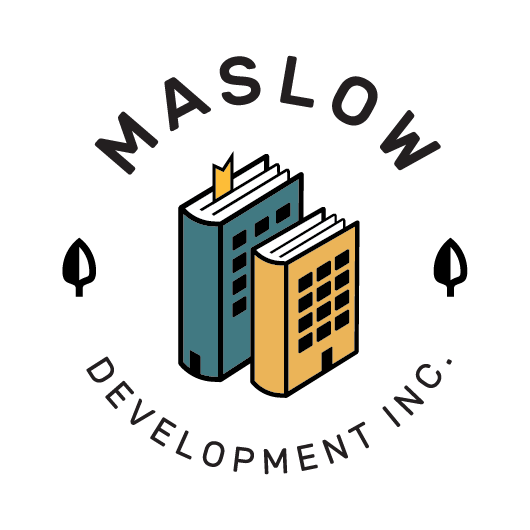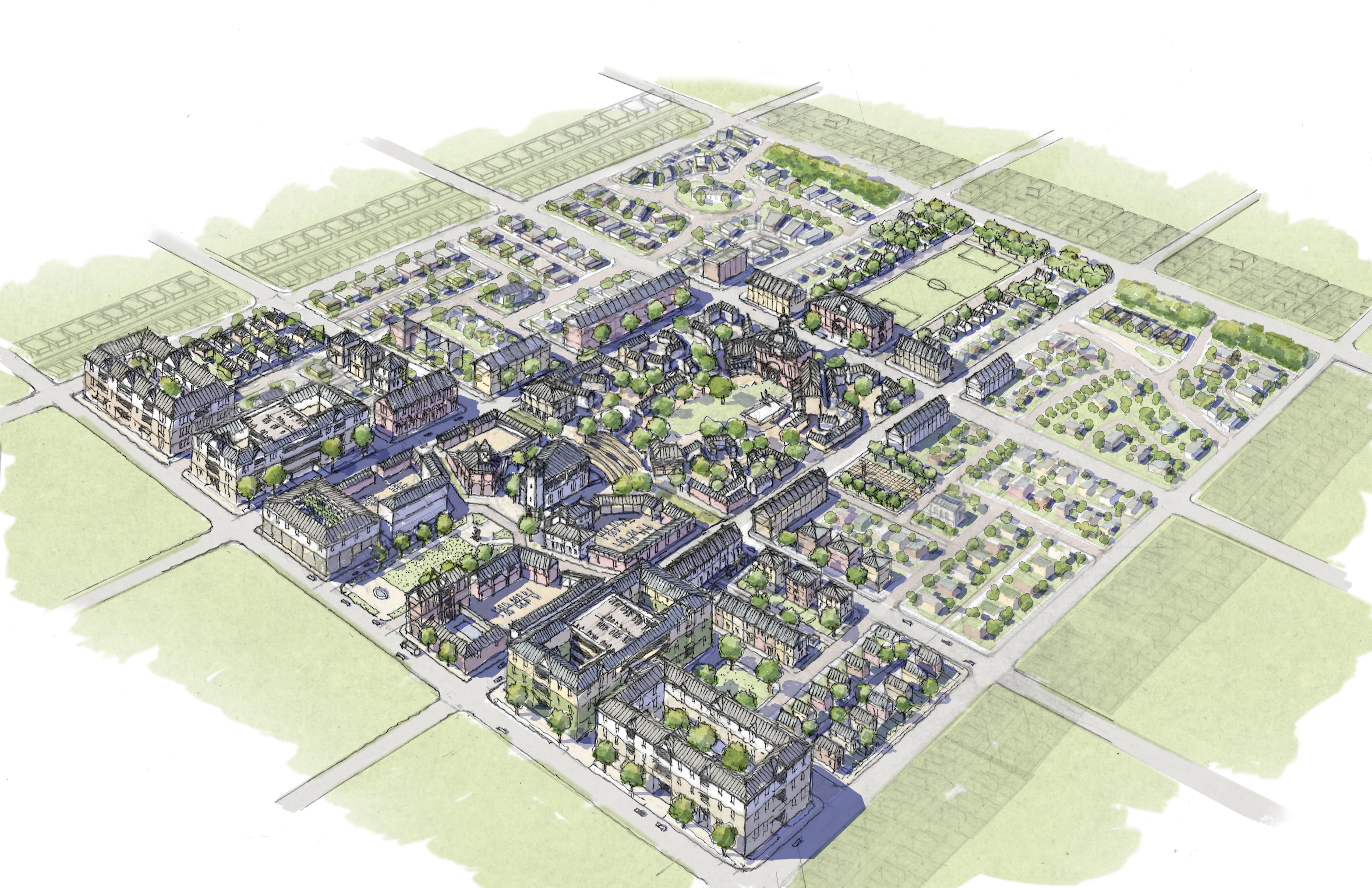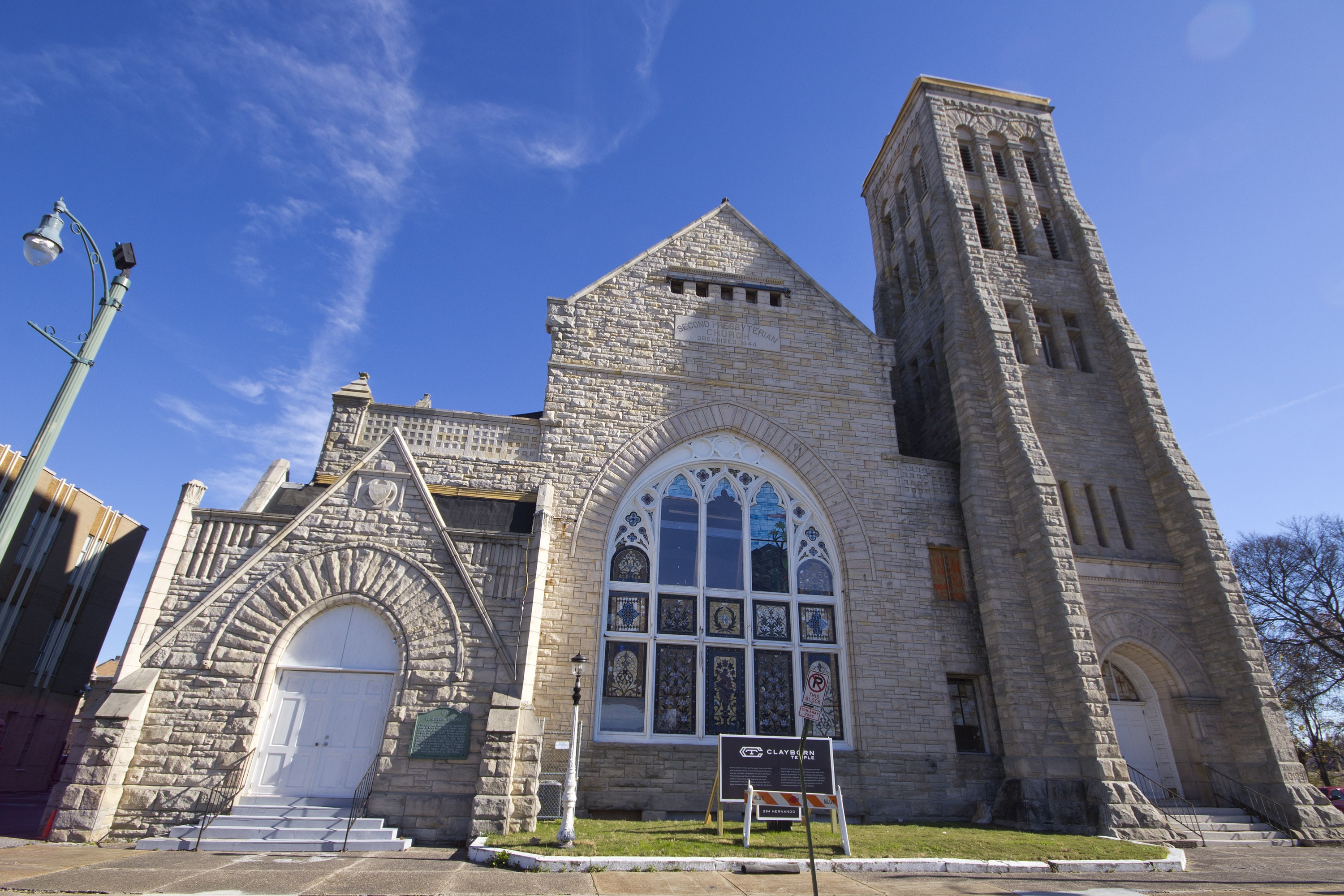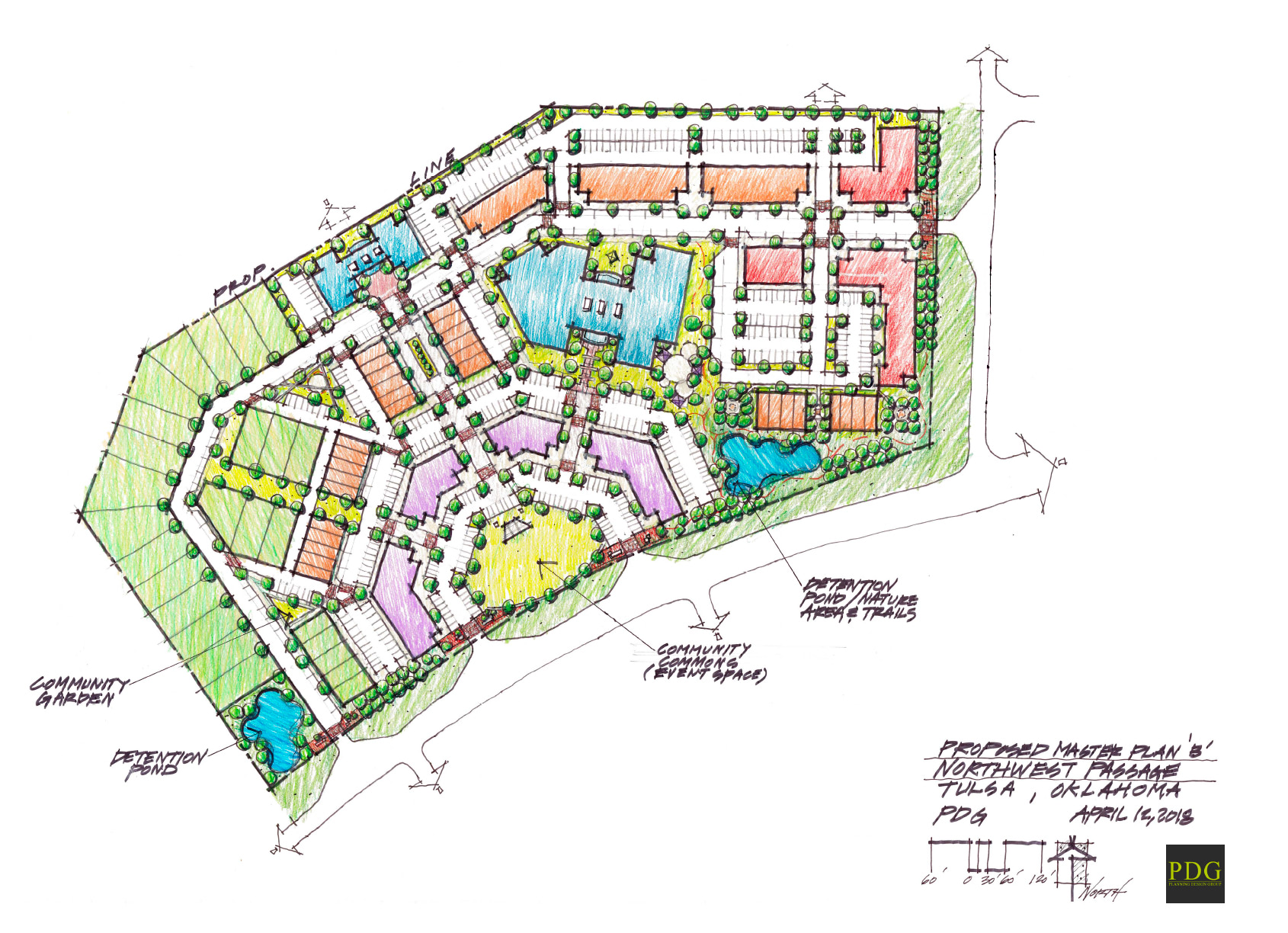We co-design & develop real estateand community ecosystems.
The landscape can be dreary...
... but this is how we plan to address it.
Community development with a local context.
A decade ago, our leadership launched a school as a way to revitalize a neighborhood. We realized early on that as good as the school was, the school wasn’t enough. We purchased blighted land, and, in its place, not only built a school, but a whole mixed-use community that included performing arts, healthcare, and housing.
What if this happened nationally?
We met some friends along the way who saw our vision and were in total agreement: this work isn’t about developing a school despite the community. The school system shouldn’t have to go at it alone. Instead, we believe the built environment is the tide that lifts all boats (including the school!).
And so, Maslow was born.
We co-design and develop real estate and community ecosystems.
Our Values
Empowerment
Cultivate community sustainability
The proverb says, “Give a man a fish and you feed him for a day. Teach a man to fish and you feed him for a lifetime.” In this spirit, we stand alongside communities to develop the tools they require to nurture community longevity and environmental, programmatic, and financial sustainability. With these tools, communities become more resilient and further equipped to weather changes over time.
Integrity
Driven by an uncompromising moral compass
In the community development space, when the decisions made directly affect living, breathing communities, the moral and ethical implications of our actions cannot be an afterthought. Therefore, we consistently uphold rigorous standards for the work we engage in throughout the planning and design process, guided by an uncompromising moral compass. Our north star--do no harm--guides us forward.
Accountability
Honor community voice
As we co-design communities with neighborhood stakeholders, we place the community’s voice front and center of the planning process. Listening is not enough. We honor their voice with our actions, such that designs echo community needs, wants, and desires. Ultimately, we are beholden to the community and with the trust built in this mutual relationship, it is our imperative to be responsible stewards, consistently held accountable by those we serve.
Optimism
Motivated by an unapologetic idealism
As we seek to stop the cycle of poverty by revitalizing under-invested communities and by designing community ecosystems, we act with dogged optimism to achieve our mission. This work is imperative and ambitious, which means we do not have another choice but to pursue our work with relentless purpose and unwavering faith that we, together, can make this possible.
Our Mission
Wraparound Infrastructure
/'rapə,round 'infrə,strək(t)SHər/
noun
Reimagining how, when, and where learning can happen by designing and developing community ecosystems of health & wellness, education, housing, and workforce development.
Our Model
It’s not enough to just invest in brick and mortar. We must build people up at the same time, which means focusing on the entire ecosystem. Let’s start with a high-quality school that anchors the community. Then, let’s add mixed-income housing, bustling workforce opportunities, and consistent access to health and wellness programs. And, let’s not walk away when the buildings are up, or displace families in the process. Instead, let’s foster strong relationships between partners and programs to ensure that each piece of the puzzle works to uplift the other.
Spectrum of Services
The ultimate goal of Maslow is to increase the economic mobility of families in disadvantaged communities by influencing the neighborhood ecosystem to better serve its residents. Aligning existing and new resources to improve student outcomes, removing/redesigning physical neighborhood barriers, and lifting up neighborhood assets will dramatically transform communities that have persisted under chronic stressors that produce adverse childhood experiences.
Designing and developing brick and mortar and determining the right programs to build a successful ecosystem that is both holistic and community-driven does not happen overnight. Projects are a journey. At Maslow, we want to meet you where you are and find innovative ways to move you to the next phase. Over the course of a project's life-cycle, our role as an organization ultimately shifts from being a consultant with project-based engagements to engaging as a full-fledged developer.
Explore Our Services
Is there already a high-quality school in the community?
Community Development
Two different starting points
- Do you have a location in mind, but are seeking capital and forging an idea?
- Do you have a vision, but are seeking a location and capital?
Project Initiation
Advise planning strategies to establish thoughtful, mixed-income communities
Support in the development of a community development project vision
- Facilitate design sprints with community members, stakeholders, and organizations to identify community needs and desires
- Lead 1:1 stakeholder meetings to share vision, work, and model
- Develop partnerships with key city and community stakeholders
Land research and identification
- Evaluate needs of a given neighborhood based on quantitative and qualitative perspective
- Look at data to evaluate the health and prosperity of a community
- Identify areas where additional investment could produce positive results
Project Financing
Assist in identifying potential opportunities for investment and development
- Identify and garner local, federal, and private funding sources
- Help communities realize the infusion of resources needed to ensure that schools and communities can work closely together to support thriving communities
Coordinate execution of project financing documents, including pro forma and capital stack
Project Conception
Coordinate execution of land feasibility studies, including market analysis, location analysis, usage concept, and risk and cost analysis
Coordinate site due diligence: market conditions and demand
Execute and coordinate master planning process in concert with local architects, from preliminary site map to master plan development
Owners Representative
Execute land use (entitlement approval) process
Coordinate planning and control of construction schedule
Coordinate development of construction documents
Manage construction process
Coordinate vendor selection with agreed upon supplier diversity goals
The Maslow team thanks you for the opportunity to work together! We look forward to determining how best to serve your needs.
Anchor Development
School model development
- Research school operators that may be a good fit for a community
- Assemble founding school team, including board members and leadership team
- Advise in writing the school application, school vision, and model
Planning and implementation of school until launch
- Develop student recruitment & hiring practices and strategies
- Identify school facility options
- Identify funding sources for school development
Once a high-quality school is designed and its doors are opened, we are eager to co-design and develop the ecosystem around it. Check out how we can help with that .
Community Development
Two different starting points
- Do you have a location in mind, but are seeking capital and forging an idea?
- Do you have a vision, but are seeking a location and capital?
Project Initiation
Advise planning strategies to establish thoughtful, mixed-income communities
Support in the development of a community development project vision
- Facilitate design sprints with community members, stakeholders, and organizations to identify community needs and desires
- Lead 1:1 stakeholder meetings to share vision, work, and model
- Develop partnerships with key city and community stakeholders
Land research and identification
- Evaluate needs of a given neighborhood based on quantitative and qualitative perspective
- Look at data to evaluate the health and prosperity of a community
- Identify areas where additional investment could produce positive results
Project Financing
Assist in identifying potential opportunities for investment and development
- Identify and garner local, federal, and private funding sources
- Help communities realize the infusion of resources needed to ensure that schools and communities can work closely together to support thriving communities
Coordinate execution of project financing documents, including pro forma and capital stack
Project Conception
Coordinate execution of land feasibility studies, including market analysis, location analysis, usage concept, and risk and cost analysis
Coordinate site due diligence: market conditions and demand
Execute and coordinate master planning process in concert with local architects, from preliminary site map to master plan development
Owners Representative
Execute land use (entitlement approval) process
Coordinate planning and control of construction schedule
Coordinate development of construction documents
Manage construction process
Coordinate vendor selection with agreed upon supplier diversity goals
The Maslow team thanks you for the opportunity to work together! We look forward to determining how best to serve your needs.
Highlighted Projects
Meet the Leadership
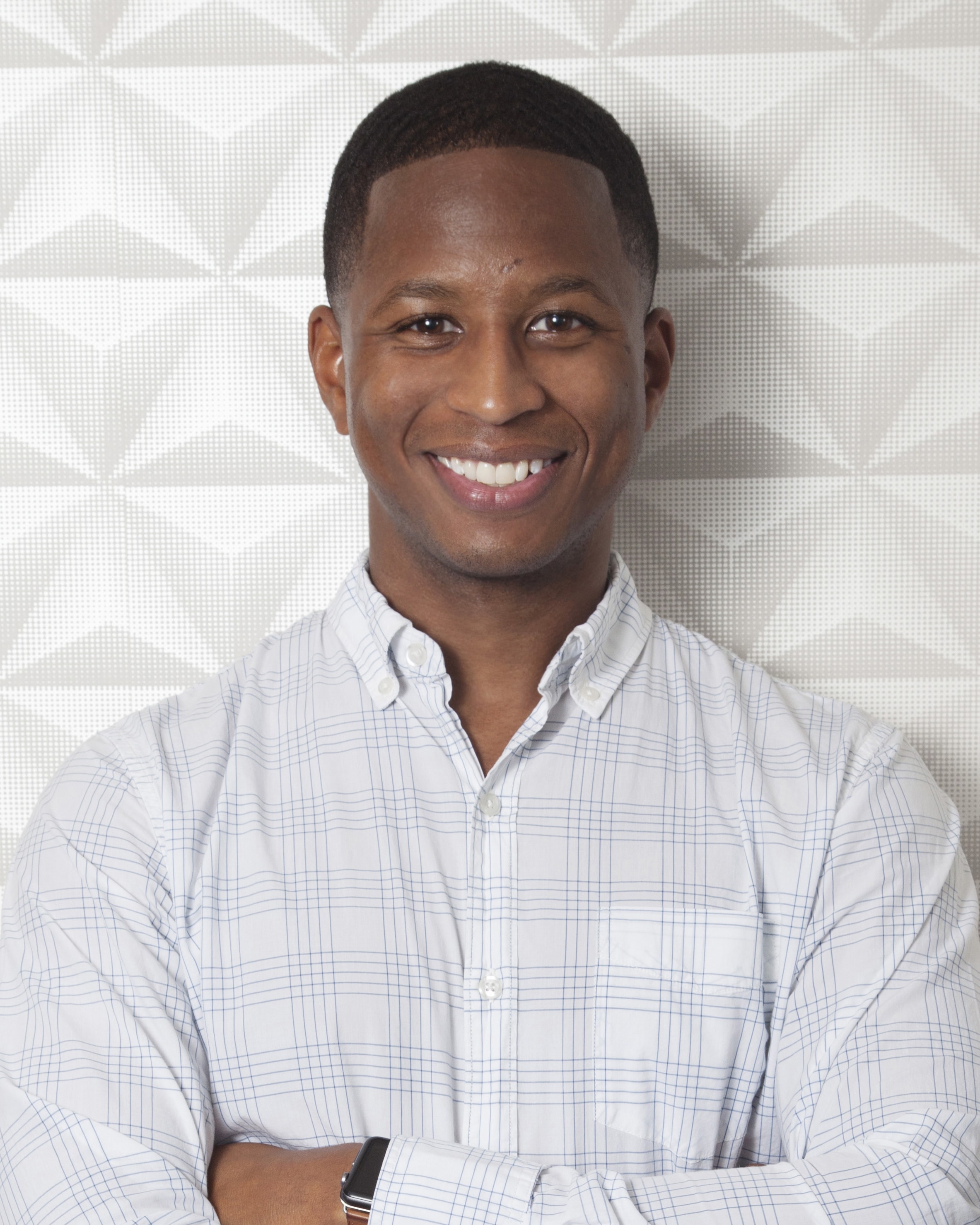
Derwin Sisnett
Co-Founder & Partner
A native New Yorker, Derwin Sisnett was born and raised in a neighborhood in desperate need of revitalization. While he attended a high performing high school in an affluent part of the city, his daily commute to and from school highlighted the stark contrast between the two neighborhoods. His passion for developing holistic communities was born from that experience. Derwin has spent the last decade in community development and public education, with a particular focus on maximizing community assets. Derwin earned a BA in Psychology from Emory University, an MFA in Creative Writing from Hollins University, and has a PhD in Educational Psychology from the University of Memphis. Derwin is also a Pahara-Aspen Fellow and a Broad Academy Fellow.
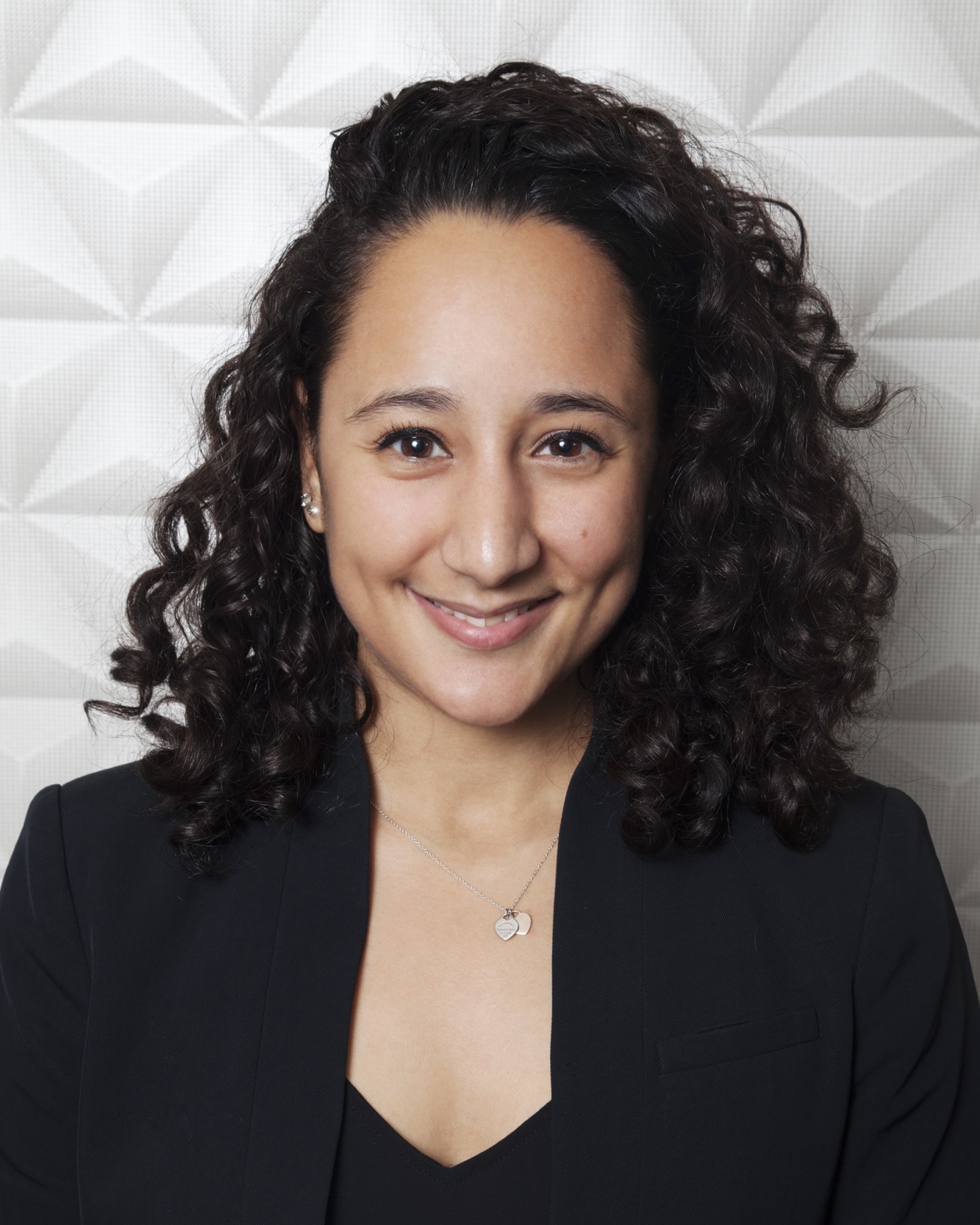
Nora Jendoubi
Co-Founder & Partner
Nora Jendoubi, a San Francisco native, was born and raised in a multicultural household, which shaped her narrative moving forward. Growing up, she saw the contrast between affluence and poverty as the daughter of a Tunisian father from an impoverished village and a French-born mother from an upper-middle class Italian family. Nora’s background provided the basis for her understanding of inequality and the impact zip code has on socioeconomic mobility and educational opportunities. As a way to disrupt systemic inequity, she channeled her efforts towards schools and their surrounding ecosystems. Nora studied International Relations and Economics at Stanford University, with a focus on the intersection between economic development, design and innovation. She is a Bay Area Teach for America alumna and Coro Fellow.
Let's break bread together.
We would love to hear from you. Say hello!
